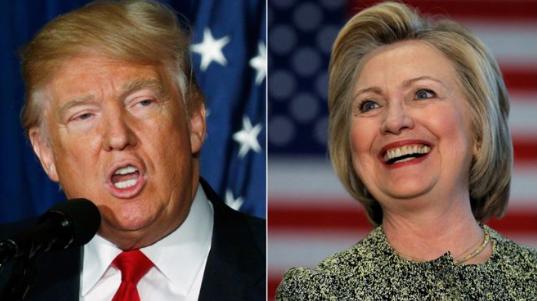|
So what have we learned from the 2016 election season? Whether happy, mad, sad or anxious, it can pay dividends to learn from experiences like the bruising 2016 U.S. presidential election. Here are a few of my takeaways.
Character counts.
Perhaps above all, this election season revealed the primacy of character as a quality most admired  in leaders. Votes cast reflected the electorate's judgment of each candidate's character qualities an in leaders. Votes cast reflected the electorate's judgment of each candidate's character qualities and flaws, real or perceived. And we were reminded that character is forged and revealed in defeat as well as victory, perhaps more so. We've heard that character is revealed by our actions when no one is looking; of course in today's world of social media and incessant media coverage it's unlikely that there are ever instances when "no one is looking;" our character, good and bad, is on display for all to judge.
How are others judging our character?
It's about trust. Trust goes hand in hand with character; our willingness to trust and follow leaders, elected or otherwise, flows from our trust in those leaders. 'No trust, no vote; if leaders lose our trust, how can we trust them with our future? Leaders earn our trust largely by demonstrating that they are driven by a motive to serve, not self-enrichment or self-aggrandizement.
What contributes or takes away from the trust that others place in us?
Promises matter. There was a lot of talk about promises this election season, promises made and promises broken. We're
 seeing a pattern here; we trust those who keep their promises, and our judgment of character is a function of whether we can believe promises and of whether promises have been kept. Our 45th president's scorecard, as has been true for those before him, will be largely a function of promises kept or broken. Perhaps the most important promise will be the promise to unite a clearly un-United States.
What promises have we made? How would others score us for keeping our promises and commitments?
Critical thinking is vital.
Responsible democracy is a shared accountability. How many assertions, aspersions and reports are accepted as true without being subjected to fact-checking and critical analysis? Stakeholders of institutions have a responsibility to hear with a critical ear and believe with a critical mind; too often we can be swayed by persuasive
rhetoric alone, hijacked by our emotions, ready to believe what we want to believe or incapable of critically evaluating the merits of claims. How might we be vulnerable or misled by trusting blindly or not critically evaluating assertions and conclusions?
Assumptions are dangerous. Time and again this election season assumptions and predictions were misleading and costly. Professional prognosticators, pollsters and quants were proven wrong at nearly every turn. Closely aligned with critical thinking, we need to continually recognize and challenge our assumptions, consult alternate sources of information and seek other explanations. A closely aligned corollary to the importance of minding assumptions is the adage that "the map is not the territory. This election's outcome was driven by factors and sentiments that escaped traditional surveys, analysis and forecasts; the farther away we get from actual reality in favor of models of reality, the more likely we are to be off course.
Which of our assumptions do we need to challenge? How might we be derailed by assumptions or misguided by others' incomplete or inaccurate intelligence?
Be strong.
How many of us would have had the strength and resilience to hold up, let alone shine, under the constant
 pressure, attacks and additional challenges of this grueling campaign? An earlier newsletter focused on the importance of resilience for leaders and organizations. Surely important contributors are passion and the drive to achieve a compelling vision or purpose. Courage, discipline and self-care are no doubt additional factors. How can we bolster our resilience?
pressure, attacks and additional challenges of this grueling campaign? An earlier newsletter focused on the importance of resilience for leaders and organizations. Surely important contributors are passion and the drive to achieve a compelling vision or purpose. Courage, discipline and self-care are no doubt additional factors. How can we bolster our resilience?
"Keep the main thing the main thing." (Stephen Covey) Was anyone else distracted and annoyed by the lack of discussion about policy and candidates' concrete plans, instead being sidetracked by candidates' personal attacks and media side-shows? It can be easy to get so absorbed by a drive to win that we lose sight of the prize; so distracted by the scoreboard that we forget what game we're really playing. My greatest fear is that a compulsion for winning or proving the other side unworthy continues in our halls of government, where instead of spirited debate in the interest of sound policy in the public interest or "a more perfect union," it's about re-election or denigration of the other party.
What additional lessons can we take away from this most trying of election seasons? It would be a waste to have invested so much energy, and experience so much anxiety and frustration, without learning from it. We owe it to ourselves, our fellow citizens, our country and institutions that we are part of to harvest and apply these hard-earned lessons.
The Seven Social Sins are:
Wealth without work.
Pleasure without conscience.
Knowledge without character.
Commerce without morality.
Science without humanity.
Worship without sacrifice.
Politics without principle.
Frederick Lewis Donaldson, 1925
Photo credits: wrbiradio, BBC Press, Goodreads.com, Ray Lutz
|